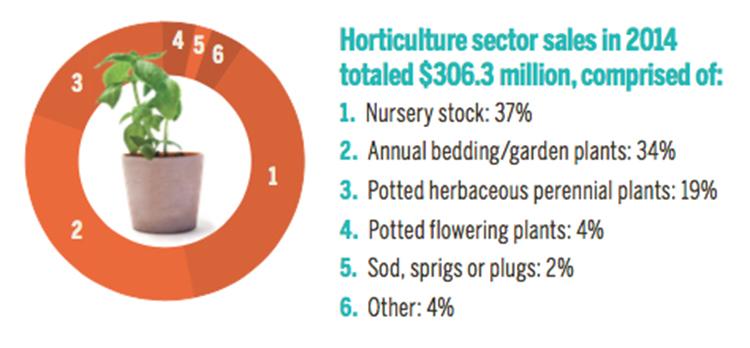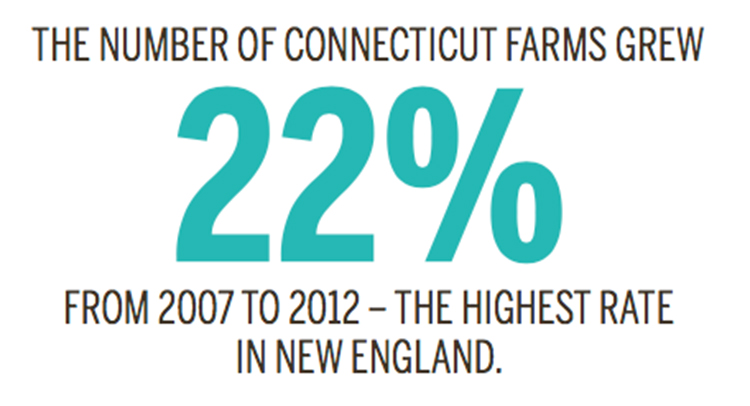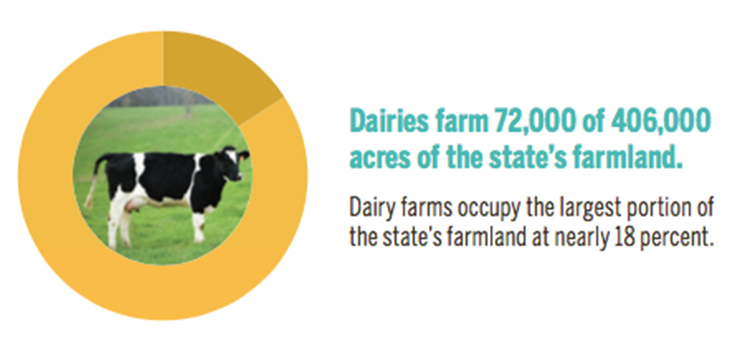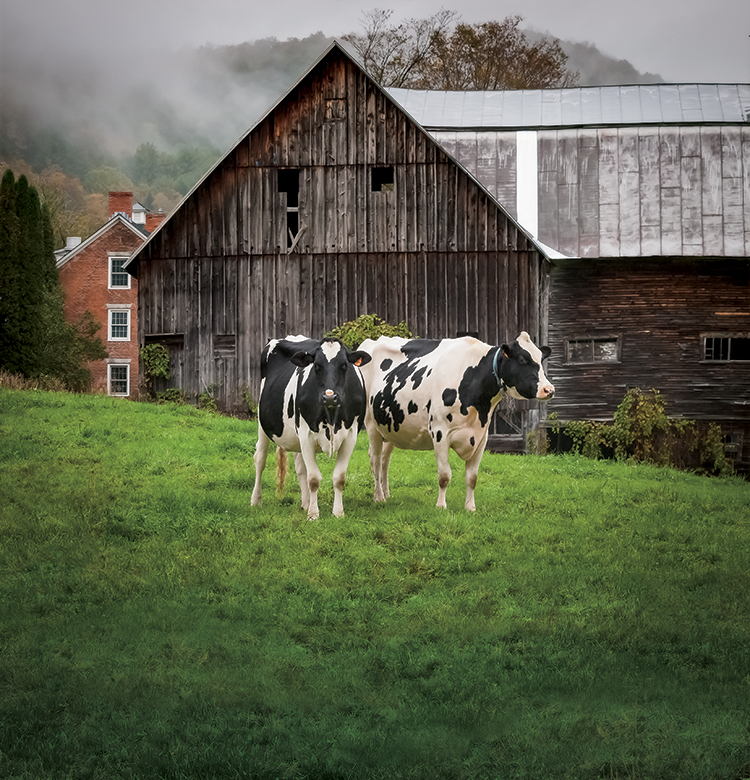Home > Connecticut > Connecticut Farm to Table > Connecticut’s Agricultural Industry Thrives
Connecticut’s Agricultural Industry Thrives
In partnership with: Connecticut Department of Agriculture

Connecticut’s agricultural industry makes a big impact. The state’s 6,000 farms are spread across 406,000 acres of farmland, with each operation averaging about 73 acres. Hardworking farmers manage the land, producing some of Connecticut’s important products such as greenhouse and nursery, milk and dairy, beef, aquaculture, tobacco, eggs and poultry, apples, maple syrup, vegetables, and more. As a whole, Connecticut’s agricultural industry adds $3.5 billion to the local economy annually.
The state is home to more than 1,400 registered beekeepers, according to data released by the Connecticut Agricultural Experiment Station. Busy bees from around 7,400 hives help tremendously with some of the state’s specialty crops, including several varieties of fruits and vegetables that require pollination to survive.
Aquaculture is also an extremely important sector of the industry. Connecticut produces high-quality oysters, famous for their fresh taste under water. Farms also produce clams, trout, mollusks, sea vegetables and more. In fact, the state has more than 80,000 acres in commercial shellfish production cultivated by more than 40 farms.
In addition to important crops and sectors, Connecticut agriculture encompasses everything from education to agritourism and agribusiness. Farmers’ markets, wineries, pick-your-own farms and orchards invite consumers to learn more about the state’s agriculture firsthand, while the Connecticut Department of Agriculture works simultaneously to keep food safe, provide services and grants, and advocate for all of agriculture statewide.
With continued efforts from all sectors of Connecticut agriculture, the state’s strong, viable industry is poised for continued growth and success.
Celebrating a Century
Farms are often passed down from generation to generation, but it’s something to celebrate when one family has worked the same land for a century.
Connecticut’s Century Farm Award is given to farms that have been operating by the same family for 100 years or more, with the potential to be successful for another 100 years. Connecticut Century Farms range in age. For example, one of the oldest is Field View Farm in Orange, founded in 1639 by Thomas Hine.
One recipient is selected each year by the Connecticut Agricultural Information Council. The state has recognized 55 farms as of October 2016.
 Planting the Seed
Planting the Seed
Though the average age of a Connecticut farm’s principal operator is around 60 years old, young farmers are gaining ground. According to the most recent Census of Agriculture, the state has about 1,416 farmers between the ages of 25 and 44 years old.
With the help of educational programs such as FFA, committees like the Connecticut Farm Bureau Young Farmers and the New CT Farmer Alliance, and programs like the Connecticut Department of Agriculture’s FarmLink, the future of the state’s agriculture industry is in good hands. All of these groups provide education, resources and support systems for both young and new farmers in Connecticut, securing a sustainable industry.
 Smart Investment
Smart Investment
Signed into law in July 2005, the Community Investment Act was created to increase funding to protect farmland, historic preservation, open space and affordable housing.
The bill was especially important for agriculture, as it historically contributes about $5 million annually to the Connecticut Department of Agriculture for several causes, including farmland preservation, farm viability and transition grants, critical support to Connecticut’s dairy farm families, and the Connecticut FarmLink and Connecticut Grown programs.
Connecticut Grown increases awareness and visibility of Connecticut-grown products, encouraging consumers to buy local.





